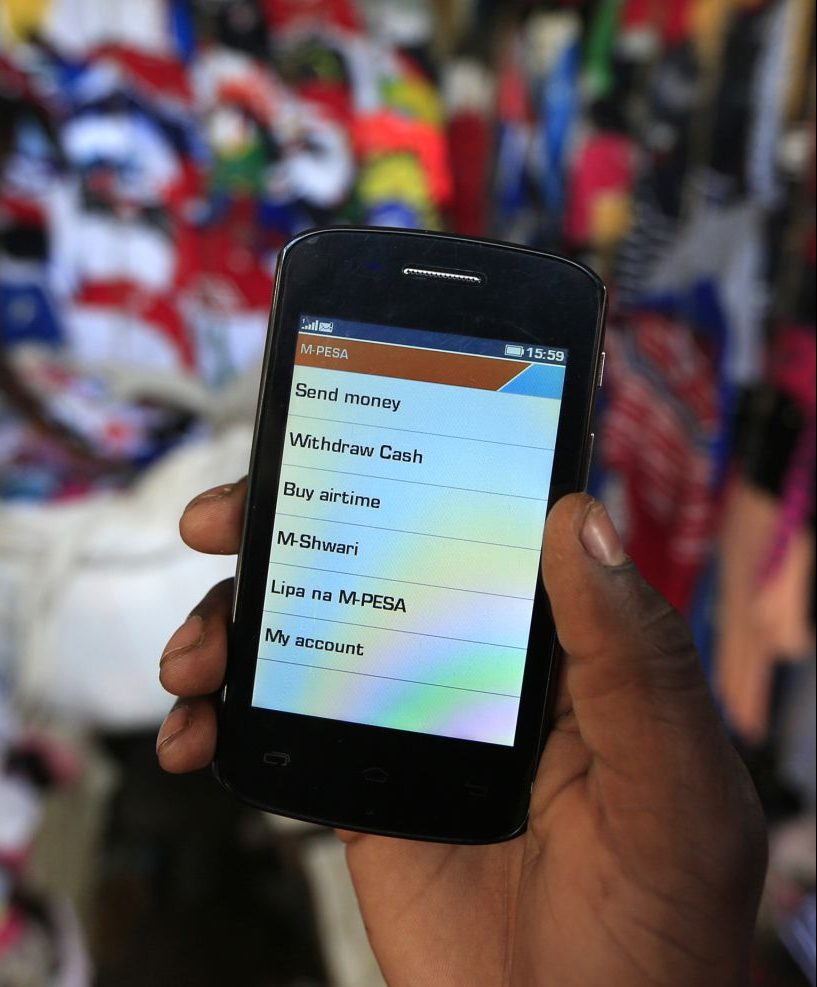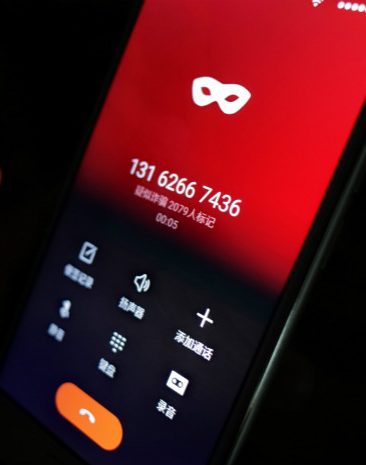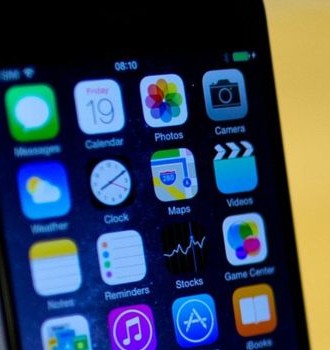Find out the week’s top mobile stories from around the world.
This week.. Google to make page speed a factor in mobile search ranking , FCC admits mobile cant replace broadband, Fintech startups took a third of all African venture funding in 2017 and much more.

Google will make page speed a factor in mobile search ranking starting in July
TechCrunch
Google today announced a significant change in how it ranks websites for mobile searches: it will now take page speed into consideration as one of its signals, the company says. The change, which Google is referring to as the “Speed Update,” will go into effect in July 2018, and will downrank very slow websites under certain conditions.
Though speed will become more of a factor in determining the order of search results, the change is not so drastic as to make it the only factor. There will be times that slow pages still rank highly – like when they have the most relevant content related to the search query at hand, for example.
Google says the update will only affect pages that “deliver the slowest experience to users” and it will only affect a small percentage of queries.
Read more…
FCC admits mobile can’t replace home Internet, won’t lower speed standard
Ars Technica
The Federal Communications Commission is making its latest determination of whether broadband is being deployed to all Americans quickly enough, and there are a few notable tidbits from what we know about the report so far. The FCC today released a fact sheet on the draft Broadband Progress Report and a statement by Chairman Ajit Pai, but not the actual draft report.
Pai’s FCC has determined that mobile broadband is not a full substitute for home Internet services. The FCC says this even after previously suggesting that mobile Internet might be all Americans need. The FCC also won’t be lowering the speed standard that it uses to judge whether broadband deployment is happening quickly enough.
Separately, Pai’s draft report claims that both fixed and mobile Internet deployment worsened because of the FCC’s Title II net neutrality rules.
Read more…
Fintech startups took nearly a third of all African venture funding in 2017
Quartz
Almost a third of funding raised by African startups in 2017 was in the fintech sector as investors bet on consumers turning to more formal financial services in a region where just 17% of the population have banking accounts. Venture funding for African startups jumped by 51% to $195 million in 2017, according to a report from Disrupt Africa.
Fintech was the biggest attraction for investors, the report says, with 45 startups raising one-third of total funding. The success of mobile money technology like M-Pesa in Kenya and across East Africa has long shown the potential for other underserved markets. M-Pesa’s success is likely also behind for the increasing presence of mobile networks in the African financial sector and the convergence of the two sectors (pdf page 11).
Read more…
Nielsen expands UK YouTube measurement to mobile app
The Drum
Nielsen is to start measuring the performance of ads served to users of YouTube’s mobile app in the UK, France and Germany. The move will expand YouTube’s subscription to the measurement firm’s Digital Ad Ratings service beyond its mobile and desktop browser services, giving marketers access to cross-device insights.
Nielsen Digital Ad Ratings clients will have access to age and gender demographics for consumers viewing ads on the YouTube mobile app as well as reach, frequency and gross rating points (GRPs).
The deepening of YouTube’s relationship with Nielsen follows on from the director general of the Institute Practitioners in Advertising (IPA), Paul Bainsfair, last year urging both Google and Facebook to take “urgent” action in addressing issues around measurement, brand safety and viewability.
Read more…
Quick Take: Mobile-Payment Fraud Rises in China, Report Finds
Caixin
Mobile payments in China have increasingly made cash obsolete, but the convenience of the new technology has raised growing security concerns.
A China UnionPay survey of 105,000 people found that 60% had been exposed to some kind of mobile-payment security threat, including information leaks, fraud or malicious attacks.
QR codes — which are scanned using a mobile phone — have become the most popular payment technology in China, but fraud via this method is on the rise, the survey found. Nearly 30% of users reporting mobile-payment fraud said QR codes were involved, up from 15% last year.
For example, a common method of cheating users with QR codes involves using a fraudulent social media account, routing the scanned code to the thief’s payment account rather than to a retail establishment’s account.
Read more…
The UK has no public nuclear alert system. SMS may be the answer
Wired
“Do not be alarmed,” read a text message sent to thousands of people in Glasgow. The SMS was part of a 2013 trial that saw around 50,000 people around the UK experience what an emergency warning may look like.
The message was in stark contrast to the warning sent to everyone in Hawaii on January 13. “Ballistic missile threat inbound to Hawaii. Seek immediate shelter. This is not a drill,” read the alert sent at 8.05AM.
It’s since been revealed the employee who sent the message clicked the wrong option from a drop-down menu – “Missile alert” rather than “Test missile alert”. In the 38 minutes it took for officials to issue a retraction, people in Hawaii panicked, fled, and contacted love ones while fearing the end was nigh.
Read more…
80% of online fraud involves mobile devices: report
ECNS
A report by the Data Center of China Internet (DCCI) and Tencent Research Institute found that some 80 percent of Internet fraud occurs via mobile devices compromised by software, free Wi-Fi and hacking of enterprise data.
In the second half of 2017, about 98.5 percent of Android apps and 81.9 percent of iOS apps required user permission to access privacy data, an increase of 2 percent and 12.6 percent respectively, but about 9 percent of Android apps misused permissions to collect user data.
Liu Ming, a researcher with Chinese Academy of Social Sciences, said consumers still have poor awareness of privacy protection and usually assume some personal data is not important, while actually it is valuable to businesses.
Read more…
Softbank plans $18bn share sale of its mobile business
BBC
Japanese giant Softbank is planning to list its mobile phone business in Tokyo and overseas, according to the Nikkei newspaper.
The listing on the Tokyo Stock Exchange and possibly in London aims to raise 2 trillion yen ($18bn; £13.1bn).
Softbank confirmed in a statement that the share sale was an option, but said no decision has yet been made.
If it goes ahead, the stock market listing would be one of Japan’s biggest initial public offerings.
The Softbank Group reportedly intends to sell about 30% of the outstanding shares in its subsidiary to investors, while keeping a stake of around 70%
Read more…
Social media and chat apps dominate the mobile journey
Business Insider
Social media and chat apps are where the majority of iOS and Android consumers first turn to on their smartphones, accordingto a report from Verto Analytics.
Nearly half of all smartphone sessions start out with a social media or chat app once the device has been unlocked.
Meanwhile, only 5% of device sessions begin with an entertainment app as the first app in their mobile device session, and only 4% of device sessions begin with a mobile gaming app. This is significant considering mobile games accounted for roughly 82% of global app revenue in 2017.
Read more… (report)
Flurry: Mobile App Usage Decreased By 5 Percent YoY In 2017
Android Headlines
Mobile devices have managed to become quite important for us, on a day-to-day basis, for many reasons, and an analytics firm called Flurry has just released a new report regarding mobile device usage, based on app usage, and device activations. Having said that, many of you would probably presume that usage of mobile devices increased in 2017 compared to a year before, and according to Flurry, that did not happen. Well, app usage did increase, by 6 percent overall, but compared to 2016’s 11 percent, that’s not such a staggering growth.
Having said that, it’s worth explaining how Flurry measures app activity, as that’s the first thing we’ll talk about here. The company measures overall session app activity growth, and that growth stood at 6 percent in 2017, while in 2016 it was 11 percent, as already mentioned. While calculating all of this, Flurry considered all 2.6 billion mobile devices out there, non-smartphone mobile devices included, by the way. Now, according to the company, people actually spend over 5 hours a day on their smartphones, though that includes both their current and new applications.














